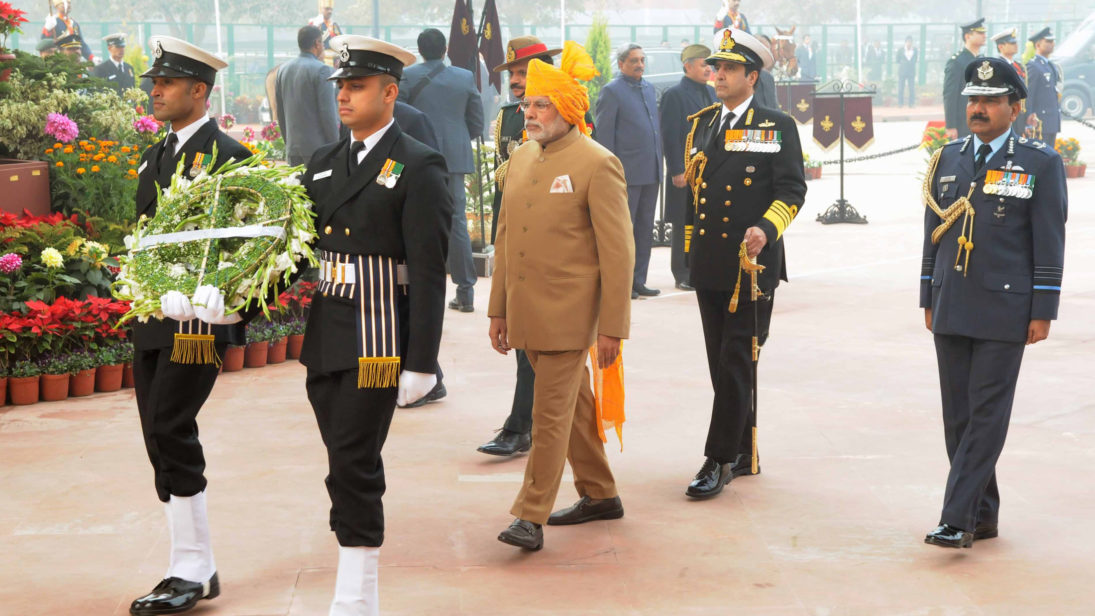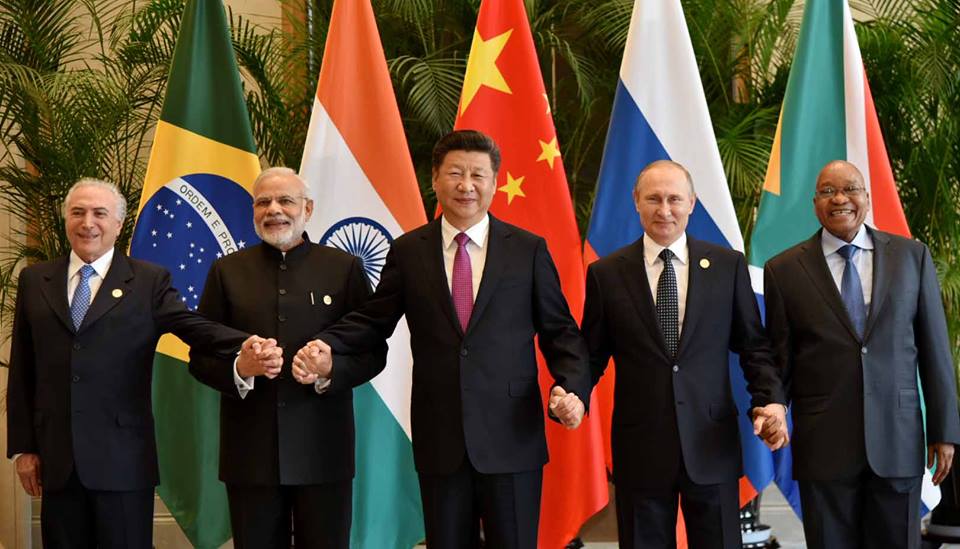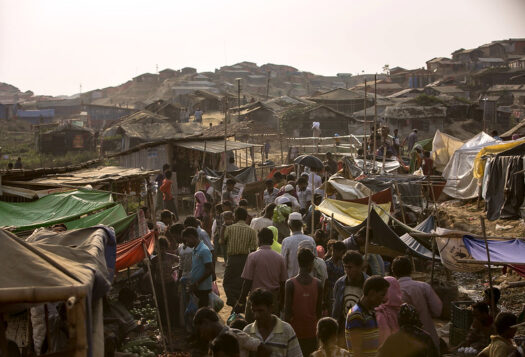
Recent Indian actions, such as making unusually sharp public statements about Pakistan, attempting to diplomatically isolate Islamabad, and reportedly launching cross-border strikes, seem to indicate that India’s Pakistan policy under Modi is moving away from defensive accommodation and towards offensive hawkishness. However, it remains to be seen whether this is just one more blip in Modi’s “blow hot blow cold” Pakistan policy, or if it indicates a decisive shift towards a more aggressive policy.
Visible Shift in Policy
Modi’s remarks in August at the all-party meeting on Kashmir and on Independence Day may have been an opening salvo marking the turn in India’s Pakistan policy. His August 15 speech criticized Pakistan for human rights violations in “Pakistan-occupied Kashmir (PoK)” and Balochistan in an attempt to draw global attention. The mention of Balochistan is particularly interesting. Former Prime Minister Manmohan Singh actually faced embarrassment after a reference to Balochistan in the 2009 India-Pakistan joint statement in Sharm el Sheikh, Egypt. In contrast, the Modi government is not shying away from internationalizing the Balochistan issue.
This stance was emulated by several functionaries of the Indian government at various international fora. Eenam Gambhir—representing India at the United Nations— attacked Pakistani Prime Minister Nawaz Sharif for referencing India and Kashmir in his United Nations General Assembly (UNGA) address. Dismissing his entire speech as a “long tirade,” she needled Pakistan, saying that “the worst violation of human rights is terrorism.”
During her UNGA speech, India’s Minister of External Affairs Sushma Swaraj buttressed the points made by both Modi and Gambhir. She stated that the long list of India’s conciliatory gestures to Pakistan, such as inviting PM Sharif to Modi’s oath-taking ceremony and resuming the dialogue process, were strongly undermined because of the Uri and Pathankot attacks.
Visible Results

India’s aggressive statements were followed by intense diplomatic pressure on South Asian Association for Regional Cooperation (SAARC) members to boycott the group’s summit in Islamabad. This was to underscore that the entire region had suffered due to Pakistan’s sponsorship of terrorism. India’s boycott of the SAARC summit created a domino effect and Bangladesh, Bhutan, and Afghanistan also pulled out. Dhaka blamed increasing interference in the “internal affairs of Bangladesh by one country,” while Kabul cited “imposed terrorism on Afghanistan.” Ultimately, Nepal, the current SAARC chair, decided to postpone the summit.
However, India’s diplomatic offensive to isolate Pakistan has had some limitations. At the recently concluded BRICS summit in Goa, although all countries agreed to make strong statements against terrorism generally, China and Russia were not willing to refer to Pakistan specifically. China, especially, has proven reluctant to undermine Pakistan publicly. Twice this year, China has blocked India’s move to ban Masood Azhar, chief of Pakistan-based terrorist organization Jaish-e-Mohammad, at the United Nations. Furthermore, Beijing announced that it was blocking the Brahmaputra River’s tributary in Tibet just days after India decided to review the 1960 Indus Waters Treaty. For its part, Russia also held its first-ever joint military exercise with Pakistan, Druzhba 2016, right after the Uri attack, even though India had conveyed its opposition to the exercise. This indicates a growing reluctance on the part of Russia also not to antagonize Pakistan.
In late September, India’s diplomatic offensive was backed by hard military action on the ground. The recent “surgical strikes” seem to demonstrate that a military component will supplement India’s diplomatic offensive in its dealings with Pakistan. For once, it ended Pakistan’s belief that India would not attack terrorist launch pads in Pakistani territory. This new policy seems to combine coercive military action on the ground with aggressive diplomacy abroad.
Conclusion
There are several ways of looking at the change in India’s Pakistan policy under Modi. It may signify a blow cold period, but it could also mark a permanent reversal in the Modi government’s policy. Interestingly, by allowing the surgical strikes across the Line of Control (LoC), the Modi government questioned the legitimacy of the 2003 ceasefire agreement, which was one of the foreign policy achievements of the Vajpayee-led National Democratic Alliance (NDA) government. This marks a significant shift from the previous governments’ ‘strategic restraint’ doctrine with respect to Pakistan.
While Vajpayee tried to resolve all outstanding issues with the Pakistani leadership through the Lahore Declaration, Agra Summit, and four point formula for Kashmir, Modi tested the waters with the Ufa Agreement and his surprise visit to Lahore. However, Indian overtures for normal relations with Pakistan have consistently been derailed for years by terrorist attacks, from the 2001 attack on the Indian Parliament to the Pathankot Air Base attack in January 2016.
With ongoing unrest in the Valley, it is predictable that Pakistan will continue its efforts to internationalize the Kashmir issue. On the other hand, India will continue to raise the issue of terrorism at international fora to counter Pakistan. While the hawkishness of the Indian government is justified, it remains to be seen whether this strategy will attain long-term politico-military results for India.
***
Image 1: Narendra Modi, Flickr
Image 2: Narendra Modi, Flickr


